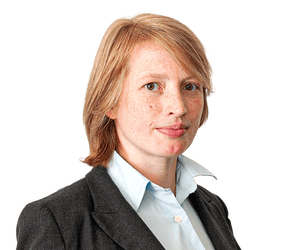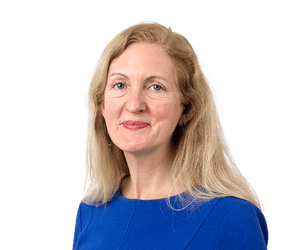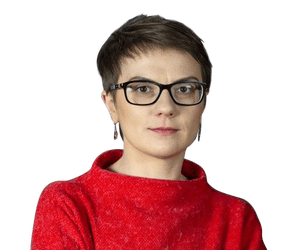Senior Russian military officer killed by car bomb in city near Moscow, officials say
Associated Press has further details of the confirmed killing of a senior Russian military official by a car bomb in the city of Balashikha, which lies just to the east of the outskirts of Russia’s capital.
It reports Russia’s top criminal investigation agency confirmed the killing of Lt Gen Yaroslav Moskalik. The deputy head of the main operational department in the general staff of the Russian armed forces, he was killed by an explosive device placed in his car.
The committee’s spokesperson, Svetlana Petrenko, said the explosive device was rigged with shrapnel. She said that investigators were at the scene.
The committee did not mention possible suspects, but Ukraine was blamed for the death of Lt Gen Igor Kirillov on 17 December last year, when a bomb hidden on an electric scooter parked outside his apartment exploded as he left for his office.
Key events
Please turn on JavaScript to use this feature
Nataliya Gumenyuk
War teaches you to believe only in what happens, rather than what is merely said or promised. A day after the “peace talks” in London, which the US secretary of state Marco Rubio didn’t even turn up for, Ukrainians were not anxiously waiting for the results of a possible deal, which looked unfeasible anyway. Instead, they were counting their dead.
According to Ukraine’s air force, in the early hours of Thursday morning Russia launched 11 Iskander ballistic missiles, 37 KH-101 cruise missiles, six Iskander-K cruise missiles, 12 Kalibr cruise missiles, 4 KH-59/KH-69 missiles and 145 drones. For Kyiv and Kharkiv residents that night, this was not just a case of reading numbers on a news feed, but hearing and feeling explosions rock their cities. It turned out to be the deadliest night for the Ukrainian capital this year.
“Not necessary and very bad timing,” Donald Trump later wrote on social media. But, Ukrainians might ask, when would be a better time to kill 12 civilians and injure at least 90?
Most people were asleep in the western suburbs of Kyiv that were hit. Most of the homes in a five-story apartment block were damaged. A ballistic missile – allegedly North Korean – destroyed an older two-story house. Most of the casualties lived there.

Jakub Krupa
… and on that note, it’s a wrap from me, Jakub Krupa, but I leave you with Tom Ambrose who will guide you through the afternoon and bring you all the latest updates.
Putin ‘weaponised’ gas supply in invasion of Ukraine, French minister says

Fiona Harvey
Meanwhile over in London, Marc Ferracci, energy minister of France, told the Future of Energy summit, hosted by the UK government and the International Energy Agency on Thursday and Friday this week, that Vladimir Putin had “weaponised” gas supply in his invasion of Ukraine.
Not only that, but predatory practices by gas suppliers were being used to gain market advantage. Energy security was “becoming a political tool”, he said. “With fossil fuels, there will be no energy security,” he warned his fellow ministers, from 60 countries.
Ferracci is also in London to talk to Ed Miliband, the UK energy minister, about nuclear plants. Keir Starmer, UK prime minister, spoke of a nuclear revival when addressing the conference on Thursday – behind the scenes, Ferracci has been holding meetings to try to ensure France, with its large nuclear industry, and existing role in building UK reactors, plays a leading role in Starmer’s plans.
With UK industry’s relationships with China coming under fire, following the apparent abandonment of its UK steel interests by the Chinese company Jingye, France senses an even greater opportunity. But delays and rising costs associated with French EDF’s existing nuclear interests in the UK are also controversial.
In an interview with the Guardian, Ferracci said nuclear power must play a key role for the UK, France and other G7 countries seeking energy security. France is planning up to 14 new reactors. Six have already been largely agreed, each with a capacity of about 1.6GW and at a total cost of about $70bn, generating about 100,000 jobs. The first of the new fleet is scheduled to come online in 2038.
“Nuclear is still very attractive,” he said. “The cost can be high in the short run, but in the long run it provides dispatchability and baseload. It makes the electricity system more resilient, and that resilience is very important.”
He said countries needed to be able to guarantee energy security, in order to be able to attract investment. “Energy security is closely linked to industrial strategy. We need to build and consolidate industrial capacity, and competitiveness.”
This was key to maintaining public support for moving to net zero greenhouse gas emissions by 2050, he added. “Our plan is still to decarbonise and reach net zero by 2050, but we are very committed to develop our industries by achieving these goals,” he said. “Climate goals, climate ambition, must not mean leaving industrial jobs on the side of the road.”

Jakub Krupa
For what it’s worth, the Élysée Palace just said that French president Emmanuel Macron will not hold any diplomatic meetings on the sidelines of this weekend’s funeral for Pope Francis, Reuters reported.
Germany’s incoming chancellor Merz skips Pope Francis’s funeral

Deborah Cole
Friedrich Merz, due to take office as Germany’s next chancellor on 6 May, has raised eyebrows for declining an invitation to the pope’s funeral.
President Frank-Walter Steinmeier as head of state will lead the delegation to Rome on Saturday and offered Merz, who is Catholic, one of the seats allotted by the Vatican along with current chancellor Olaf Scholz and other top officials.
Media reports noted that the seating plan might have caused headaches as there are no reserved spots for leaders in waiting.
However Merz’s team told German media the reasons for not attending the high-profile service with world leaders including Donald Trump, Ursula von der Leyen and Volodymyr Zelenskyy were more banal.
On Monday his Christian Democratic Union will hold a party congress to sign off on the coalition deal with the Social Democrats paving the path to power. Preparations for naming a cabinet are also still under way, with key briefs such as the economy ministry still unfilled.
Both apparently need the undivided attention of Merz, who as opposition leader attended the funeral of German-born Pope Benedict XVI in 2023.
But as Europe impatiently waits for Berlin to return to a leadership role after months of political limbo, the choice to send regrets seemed curious to many.
Scholz, who has failed to secure an invitation to Washington since Trump took office, came in for sharp criticism in December for skipping the reopening of Notre Dame in Paris, ostensibly on protocol grounds. Observers noted that Steinmeier, who did attend, wound up seated directly behind Trump and Emmanuel Macron.
Zelenskyy highlights Russia’s help from North Korea, calls for pressure on Moscow
Ukrainian president Volodymyr Zelenskyy repeated his claim that the missile used for yesterday’s attack on Kyiv that killed 12 and injured more than 90 was made in North Korea – but also highlighted the role of US companies in the supply chain.
In a social media update, he said:
The lack of sufficient pressure on Russia allows them to import such missiles and other weapons – and to use them here, in Europe.
The lack of sufficient pressure on North Korea and its accomplices enables, in particular, the production of such ballistic missiles.
The missile that killed civilians in Kyiv contained at least 116 components sourced from other countries – and most of them, unfortunately, were manufactured by American companies.
He added:
In today’s world, any war can very quickly draw in a wide range of actors, and any country that becomes a victim of aggression is never defending itself against a single entity, but against a group of accomplices. That is why it is so important for defense to be based on collective efforts as well.
He then returned to his call to put more pressure on Russia to force it to accept a ceasefire.
We insist that Russia must immediately and unconditionally agree to a full ceasefire.
Ukraine agreed to President Trump’s proposal for a ceasefire in the skies, at sea, and on the front lines 45 days ago. We offered to make it comprehensive and to extend the ceasefire that could have been established on Easter. We also made a direct proposal to Russia to at least halt strikes on civilian targets.
Russia rejects all of this.
That is why this cannot be resolved without pressure. Pressure on Russia is necessary. Ending the killings is the first priority.
Putin-Witkoff meeting still ongoing
But to Moscow, Russian news agency Ria Novosti just said on its Telegram channel, quoting the Kremlin spokesperson Dmitry Peskov, that the meeting between Russian president Vladimir Putin and US envoy Steve Witkoff is still ongoing.
Spanish police arrest woman over sale of newborn daughter
Spanish police said they had arrested a woman who allegedly sold her newborn baby girl to a couple undergoing fertility treatments for 2,000 euros ($2,300), AFP reported.
Officers arrested the 37-year-old last month in Mostoles, a southern suburb of Madrid, a police statement said. The couple suspected of buying the baby and two of their relatives were detained in the southern city of Cordoba.
AFP said that a preliminary investigation concluded the woman “reached an economic deal” to give her newborn baby for 2,000 euros to the couple, but then “regretted selling her daughter” and asked to get her back.
The couple refused to return the baby unless the woman returned the money they had paid, plus another 1,000 euros to cover various expenses the woman said she had incurred during the month she spent with them in Cordoba before giving birth, AFP noted.
Police said they began investigating after the woman filed a complaint alleging that a family in Cordoba had “kidnapped” her newborn baby.
The baby was turned over to a child protection centre in Cordoba. The authorities had in 2022 removed the woman’s six other children from her custody, accusing her of neglect, police said.
‘Legal chaos’ as Romanian court rules against annulment of presidential vote

Jon Henley
Piling confusion on controversy, a Romanian district appeals court has ruled barely a week before the rerun of the country’s presidential election that the constitutional court’s decision cancelling the original vote should itself be annulled.
Romania’s central electoral bureau said on Thursday night that the ruling by the Ploiești city appeals court would not affect the two-round ballot, due to be held on 4 and 18 May, and legal experts have said constitutional court decisions are final.
But the decision, which is likely to be overturned within days by the high court, has added what media described as “unprecedented legal chaos” to an already contentious vote that has been the subject of fierce debate at home and abroad.
The original first round last November was won by Călin Georgescu, a far-right, anti-EU, Moscow-friendly independent who declared zero campaign spending but surged from less than 5% days before the vote to finish first on 23%.
The constitutional court annulled the vote after declassified intelligence documents revealed an alleged Russian influence operation, including multiple cyber-attacks on the electoral IT system and “massive” social media meddling in Georgescu’s favour.
In February, Georgescu, who denies wrongdoing, was placed under investigation on counts including misreporting campaign finances, misuse of digital technology and promoting fascist groups, and in March he was barred from standing in the rerun.
The election is being closely watched abroad: the EU would prefer not to have another nationalist disruptor in the region alongside Hungary and Slovakia, and Ukraine’s allies would prefer Romania, home to a big Nato base, to remain a strategic ally.
Final hours for Catholic faithful to pay respects to Pope Francis
The Vatican said 150,000 people have already paid their respects to Pope Francis, whose body is lying in state in St Peter’s Basilica, AFP reported.
Pilgrims from around the world have only a few hours left to visit the basilica before it closes to visitors ahead of tomorrow’s funeral.
On Friday evening, at the end of his lying in state in St. Peter’s Basilica, Francis’ coffin will be sealed in a private ceremony led by eight Catholic cardinals, Reuters said.
Somewhere between 200,000 and 500,000 people are expected to attend the funeral, with around 50 heads of states and governments, including US president Donald Trump, UK prime minister Keir Starmer, French president Emmanuel Macron, Ukrainian president Volodymyr Zelenskyy and Argentinian president Javier Milei.
Their presence involves a massive logistics and security operation to ensure smooth arrivals and departures and security throughout the weekend, with many leaders arriving on Friday afternoon and evening.
After the mass, Francis will then be buried according to his wishes in the Basilica of Santa Maria Maggiore outside the Vatican.
The funeral cortege will travel to the basilica from St. Peter’s at walking pace. Crowds are expected to gather along the route, which is about 5.5 km (3.4 miles) long and will pass by many of Rome’s famed monuments, including the Colosseum, Reuters noted.
Why did Francis choose this particular church, to which he had a special devotion? Our Rome correspondent Angela Giuffrida has the answer.

Jakub Krupa
As we await further updates from Moscow, let me quickly bring you up to date with other news from around Europe.
Claim to end war in Ukraine on day one was was ‘figurative,’ Trump says
We earlier brought you a key quote Crimea from Trump’s big interview with the Time magazine with the US president claiming that “Crimea will stay with Russia” (here), but there are more lines there that are, erm, interesting.
Here is another passage from the interview, as per the official transcript:
You said you would end the war in Ukraine on Day One.
Well, I said that figuratively, and I said that as an exaggeration, because to make a point, and you know, it gets, of course, by the fake news [unintelligible]. Obviously, people know that when I said that, it was said in jest, but it was also said that it will be ended.
Witkoff meets Putin at the Kremlin – in pictures
Video published by the Kremlin has shown Steve Witkoff and Vladimir Putin shaking hands and exchanging pleasantries before sitting down on opposite sides of one of the Kremlin’s large white oval tables.
Putin was accompanied by his foreign policy adviser Yuri Ushakov and investment envoy Kirill Dmitriev. Witkoff appeared to have one other US official with him.
Russia confirms that Vladimir Putin and Steve Witkoff are meeting at the Kremlin
Vladimir Putin’s spokesperson Dmitry Peskov has confirmed that the Russian president is “receiving president Trump’s envoy Steve Witkoff in the Kremlin”, Reuters reports, citing Interfax.
Tass has reported on its Telegram channel “Ushakov and Dmitriev take part in Putin’s meeting with Witkoff”.
Presumably – although the Guardian has not confirmed this – that suggests Yuri Ushakov, former Russian ambassador to the US, and Putin’s investment envoy Kirill Dmitriev are in attendence. Dmitriev met Witkoff earlier this month.
Here is another image from the scene in Balashikha where Lt Gen Yaroslav Moskalik was killed in a car explosion.
In Moscow, Interfax is reporting that Vladimir Putin is meeting with US envoy Steve Witkoff.
Reuters reports foreign ministry spokesperson Heorhii Tykhyi has reaffirmed Kyiv’s negotiating position, saying that at talks in London this week the Ukrainian delegation insisted that Ukraine will not accept:
-
being forced to recognise any part of Ukrainian territory as Russian
-
allowing any country to have a veto on what alliances Ukraine can make
-
imposing any restrictions upon Ukraine’s armed forces
Documents published earlier today [See 11.35 CEST] suggest that the US is proposing that Ukraine be allowed to pursue EU membership if it desires, but will be permanently barred from joining Nato. Preventing Ukraine’s Nato membership has been one of Vladimir Putin’s war goals.
This is an image from @balashikha_life, shown on Russian media, which purports to show the car bomb in Balashikha, a city just to the east of Moscow, which killed senior military official Lt Gen Yaroslav Moskalik.
The Guardian has not independently verified the image.














